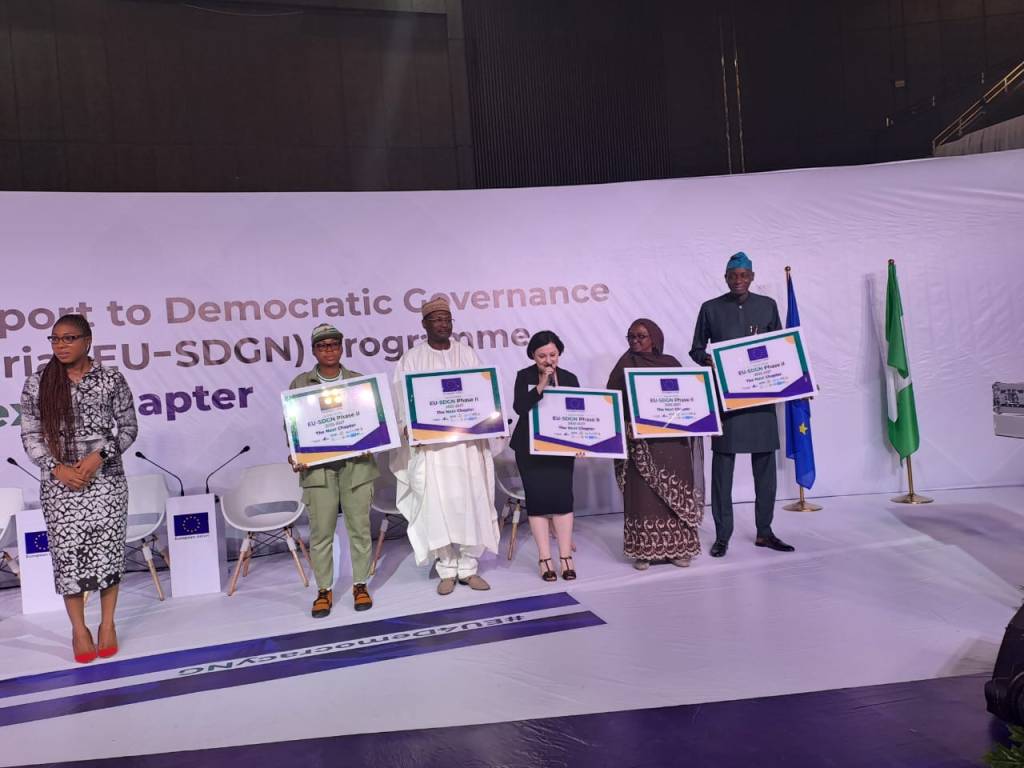
European Union has launched a thirty nine million Euro (€39m) programme to improve the quality of electoral administration in Nigeria.
The programme tagged EU Support to democratic governance in Nigeria (EU-SDGN) Phase II, would enhance pluralism, internal democracy and equality of opportunity in political parties, as well as enhance participation of women, youth and other marginalized groups in the political process
At the launch in Abuja, the Head of the European Union Delegation to Nigeria and ECOWAS, Samuela Isopi, explained that the project would empower the media to promote fair and ethical coverage of the electoral process, combat hate speech and disinformation.
According to Isopi, the programme would empower civil society organizations and relevant agencies to demand greater transparency and accountability in the electoral and decision making process in the country.
While stressing that the European Union would continue to provide support by building on the successes of the past electoral cycles, Ambassador Isopi advised that INEC should be allowed to operate free without pressure.
The Chairman of the Independent National Electoral Commission, INEC Prof Mahmood Yakubu said the commission had benefitted from the first phase of the EU-SDGN Programme through the training and capacity building of its staff, engagement with stakeholders, voter education to promote electoral inclusivity.
He expressed confidence that the phase two which will be implemented until 2027 would build on the successes recorded in the first phase.
‘’INEC was a key beneficiary of the first phase of the EU-SDGN Programme conceived under the National Indicative Programme 2014 – 2020, implemented by the European Centre for Electoral Support (ECES), the Commission received various support mainly in the areas of training and capacity building for staff, engagement with stakeholders, among others”. Prof Yakubu stated.
The combination of these activities enhanced public confidence in the commission, and provided valuable assistance in strengthening the integrity and credibility of the electoral process.
A major achievement in this regard is the progressive provisions of the Electoral Act 2022, especially the deployment of technology for voter accreditation and result management at polling unit level.
“The new progamme is anchored on the priorities of the European Union and the Federal Government as contained in the Indicative Programme 2021-2027 and formulated based on the key recommendations of the EU Election observation Mission (EU-EOM) report on the 2015 and 2019 General Elections’’.
Speaking during a panel a section a former chairman of INEC Professor Attahiru Jega stressed the need for a change of mindset among politicians in the political process with the objective of having elections with integrity to meets the aspirations of electorate.
RN